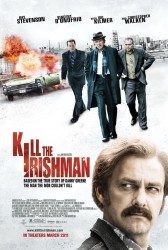A pretty quiet week in terms of news, with one big news story. I am of course talking about the premature death of Steve Jobs. But since then, on almost every web forum that I visit, there has been discussions on the reactions to his death. For me, Jobs was a brilliant business man that shaped the many industries he was part of – you can say that he didn’t invent digital music players, smart-phones or tablets, but you can’t deny that he made them devices that everyone wanted, which is perhaps the hardest task of all. And that’s why he will be a great loss to the IT and consumer electronic industries.
As for other news, as mentioned earlier, it was a pretty quiet week. I want to mention that a new version of the ever useful ImgBurn software has been released this week as well (and you can download the latest version here). Digital Digest helps to host the official website and download links for ImgBurn, and combined with some networking issues (which has just been resolved, thanks to a concerted effort by me and the tech support team at my web host, SoftLayer), there might have been some interruptions to parts of our website in the last few days, and so I would like to apologise for any inconveniences caused. It’s all good now though, so let’s get started with the WNR.

And as usual, we start with copyright news. In fact, copyright news is all we have this week actually, so this will be a pretty short WNR. We start with possibly good news for those “named” in the original ‘The Hurt Locker’ mass copyright lawsuit, as more than 22,000 defendants has been voluntarily dismissed by the people behind the lawsuit, the producer of the film, Voltage Pictures (represented by everyone’s favourite law firm, the US Copyright Group).
Of course, many of the 22,000 might have already paid up to settle the case, and so perhaps, it’s not such great news, or even news. Unfortunately, more than 2,300 IP addresses, and some named defendants, are still part of the lawsuit. I don’t even like to use the term “defendant”, because an IP address is not enough to link a person to the alleged crime. But until the legal establishment clue up to just how the Internet works, and the copyright lobby continue to mislead those in charge about the technical aspects of copyright infringement, we’ll just have to put up with the likes of Voltage and USCG.

An Australian firm is following the footsteps of firms in the UK and US by using downloaders of the film 'Kill the Irishman'
Even those not in the United States, it seems. The big news here in Australia this week was that mass copyright lawsuits have reached their way down under, and up to 9,000 IP addresses have been found to have downloaded the film, ‘Kill the Irishman’. The firm Movie Rights Group (MRG) is Australia’s answer to the USCG, and they are pursuing the case for the producers of the film, and have already contacted ISPs to get the contact details of subscribers. But MRG appears to want to do things a bit different, have deliberately avoided including IP addresses in the lawsuit that appears to be from public Wi-Fi networks, or basically anything that could cause them trouble in court, and that’s probably a smart move (Righthaven take note). I don’t think we have a statutory damages system in Australia for copyright infringement, and so MRG will have to be a bit creative with their warnings of just how much people could be fined if they do not settle the case by paying the required settlement fee. And MRG will have to be careful, as the judges here aren’t always as friendly to the copyright lobby as judges in the US, not that I think MRG will even try to take a single case to court anyway (not really worth the risk or the financial expenditure, again, Righthaven take note). Unfortunately, ISPs here seem to be more than willing to pass on user details, and I think the verdict from the AFACT vs iiNet trial might be influencing their decision here – a trial that ISP iiNet won, but there were enough decisions in there to allow MRG’s operation to move forward.
Now, some have already questioned the motives of firms like the USCG and MRG, in that many believe they don’t really care about stopping piracy, and that their operations are nothing more than ones designed to generate revenue. But even if their motives are purely about stopping piracy, is piracy a big enough problem to warrant such a response? And would you not expect film distributors Miramax would be the first to argue that, yes, piracy is indeed the biggest problem facing the film industry. But apparently, that’s not so, says Miramax CEO Mike Lang. Instead, Lang says, in a keynote discussion session at the MIPCOM conference with Netflix’s content officer Ted Sarandos, that market monopolies, such as the one that Apple enjoys in the the music business, is the biggest danger. One might say that Netflix is quickly developing a monopoly of their own, if they don’t have one already, but Lang does point out that Miramax made deals with both Netflix and Hulu, in the hope that increased competition would help prevent an Apple iTunes like monopoly forming for the movie industry as well. On the issue of piracy, both men agreed that, it’s not as big an issue as others in Hollywood believes (or wants others to believe). Both men identified innovation, or the lack of it, as one of the driving factors behind web piracy, and that increased innovation should help fight the piracy problem. Sarandos interestingly noted that most people don’t actually want to pirate content (except for maybe college students, he joked), and that they’ve been, in some ways, forced to do so due to the industry not being able to respond to their needs quickly enough. If there’s prove of wisdom in Sarandos’ words, then all you have to do is to look at the growing strength of Netflix to see that, if there is a legitimate service at a good price, people will pay that price.
But it appears that the only real innovations that Hollywood has come up recently has been one form of DRM or another, or great services crippled by DRM. And new research show that the use of DRM could actually increase piracy rates. Professors from Rice and Duke University have released a paper arguing that if content holders stopped using DRM, this will actually lead to a drop in piracy rates. This might seem counter-intuitive, but as I’ve spoken about many times before in the WNR, DRM only really affects paying customers, since other than the selected few hackers that have to deal with it and try to remove it, the majority of the pirating population never have to even think about DRM (and many paying customers also resort to piracy so they don’t have to think about DRM as well). And so you have a technology that doesn’t work to stop piracy, and only affects paying customers, and this makes pirated products more attractive than legitimate buys, and how does this not help to increase the popularity piracy? The marketing professors also noted, from their own research, that decreasing piracy does always lead to increased revenue, and that in some cases, the reverse is true – lower piracy equals lower sales! Again, this doesn’t surprise me, because piracy allows people to test products and content before they buy, and while many won’t bother to pay for it, some will, and will do it with confidence.
So if DRM may actually cause piracy, why not ban it? Which is what the European Greens and the European Free Alliance, of which the Pirate Party is a member of, thinks should be done in Europe. The Greens have released a new position paper on copyright reform, and in it, they call for the ban of DRM. Their argument is slightly different to that of the University professors’, in that the Greens believe that DRM allows corporations to overrule existing copyright laws, especially in the area of fair use, and that is a threat to government wishing to provide a fair and balanced copyright platform. But the most interesting change the Greens have proposed is the complete legalisation of file sharing of copyrighted content, but only if the file sharing is personal,non commercial. Basically, if the Greens’ proposal becomes law, it would be legal to download music, movies and games from file sharing networks such as BitTorrent, as long as money did not exchange hands. Yeah, I can just see the RIAA, MPAA embracing these changes. The fact is that tougher copyright laws have not worked to stop piracy, and it has only allowed the likes of the USCG and MRG to take advantage, sucking money out of both consumers and the creative industries, while piracy continues to climb. As the Greens see it, the only way to solve the piracy problem is to increase competition, force content holders to compete with pirates by taking away their technical and legal solutions (none of which has worked, BTW), and so force content holders to start innovating, force them to offer a superior service and superior products, as opposed to punishing legitimate consumer, the innocent people who get caught up in mass copyright lawsuits, and investing in expensive DRM solutions that don’t even work. The net effect is to force companies to learn from the likes of Apple and Netflix, and let go of their ageing and dying business models, and I don’t think that can be a bad thing.
Not much happening that’s interesting enough in the other topics, so this brings us to the end of this fairly short WNR. See you next week.


